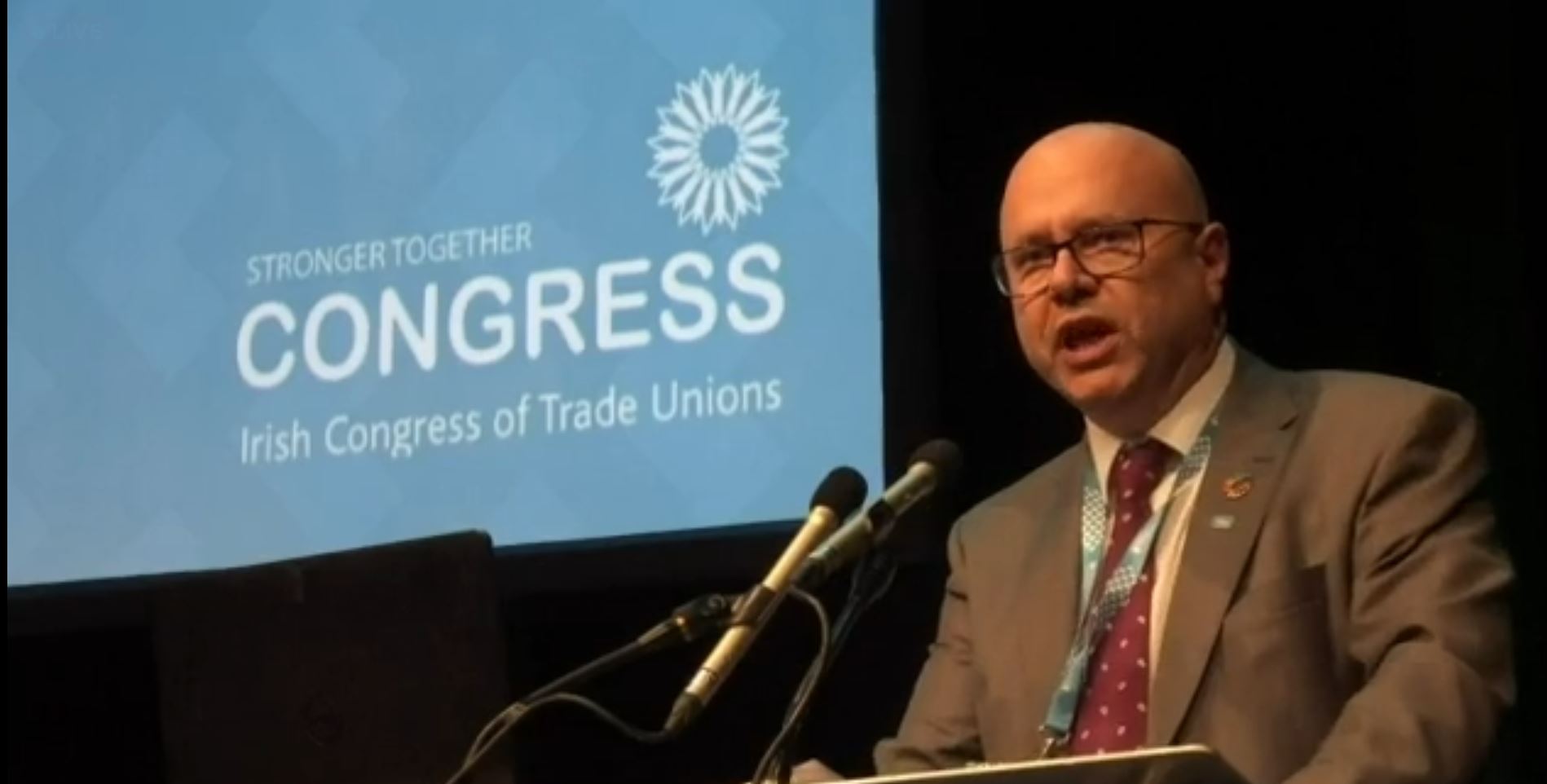The leader of Ireland’s largest public service union has called on the Government to open negotiations on a new public service pay agreement by May at the latest. Fórsa general secretary Kevin Callinan also said that the size and timing of any agreed pay adjustments “will need to reflect the realities of the cost of living crisis, which is hurting workers regardless of what sector they work in.”
Speaking at the AGM of the union’s Kildare Health Branch in Naas this evening (Tuesday), Mr Callinan said the current agreement, Building Momentum, had not kept pace with inflation, which was far higher than projected when the deal was negotiated in late 2020. This meant talks on a successor agreement “must prioritise the restoration and improvement of living standards in the context of high inflation.”
Mr Callinan called on the Government to take “decisive action” to protect living standards and ensure that the public service can compete in a tight labour market. “We need to act now to stabilise the current public service agreement, which is essential to certainty in public service delivery, industrial relations, and public finances,” he said.
We need to act now to stabilise the current public service agreement, which is essential to certainty in public service delivery, industrial relations, and public finances.
Mr Callinan told the meeting: “If you average inflation across the whole of 2021, the annual rate for the whole year was 2.4%. The value of Building Momentum pay improvements was 0.25% over the same period. The EU now expects Irish inflation to rise to 4.6% for the whole of 2022. The annualised value of the Building Momentum increases in the same year will not exceed 1.2%, even when sectoral bargaining is taken into account.”
He called on the Government and its officials to clear the decks for fresh negotiations by quickly finalising two outstanding elements of Building Momentum – its sectoral bargaining provisions and the restoration of austerity-era added working time, as recommended by an independent body chaired by top mediator Kieran Mulvey.
He called on the Government and its officials to clear the decks for fresh negotiations by quickly finalising two outstanding elements of Building Momentum – its sectoral bargaining provisions and the restoration of austerity-era added working time.
“When I spoke to the Taoiseach, Tánaiste and Ministers Donohoe, McGrath and Ryan at the Labour Employer Economic Forum earlier this month, I said early confirmation that the Government will implement the independent body’s recommendations was essential to the credibility and stability of Building Momentum.
“We also need the Government to give an early confirmation that talks will begin in earnest no later than May 2022, to allow sufficient time to negotiate a package, consult with members, and ballot on the outcome in time for any necessary provisions to be included in the October Budget,” he said.
Mr Callinan, who is currently also president of the Irish Congress of Trade Unions (ICTU), noted that Ireland’s exchequer figures remain buoyant, and that the EU is forecasting economic growth of 5.5% this year. “Others are predicting an even stronger performance,” he said.
There is no doubt that we face a challenge. But a failure to act risks turning that challenge into a serious problem for the public finances, for our public services, and for everyone who delivers or depends on them.
“There is no doubt that we face a challenge. But a failure to act risks turning that challenge into a serious problem for the public finances, for our public services, and for everyone who delivers or depends on them,” he said.
Mr Callinan added that the modest pay adjustments in Building Momentum, and the agreement’s unusually short two-year duration, reflected the economic and fiscal uncertainty in the period when the deal was finalised.
“Building Momentum was negotiated in late November and early December 2020. In the thick of the pandemic, well ahead of the arrival of vaccines. It was a time of huge uncertainty for us all, and it was an uncertain time for the public finances. As a result, it was very much a ‘holding’ agreement, and this was reflected in its unusually short two-year duration.
“Equally, the pay increases – of 1% in October 2021; 1% in October 2022; and 1% available under sectoral bargaining from February this year – were modest. This reflected the absence of any expectation of the high and sustained cost-of-living increases that workers across the economy are now struggling with.
“Government ministers have been encouraging employers to increase wages as their contribution to tackling the cost of living crisis. Many employers have already done so, if only to recruit and retain the staff they need to survive and thrive in the new post-Covid labour market reality.
“The State also has a responsibility as an employer. Prevarication will only invite challenges to the current public service agreement and store up bigger difficulties and uncertainties with regard to the public finances and industrial relations,” he said.
Fórsa is Ireland’s largest public sector union with over 80,000 members, most of whom work in health, education, local authorities, the civil service and State agencies.

